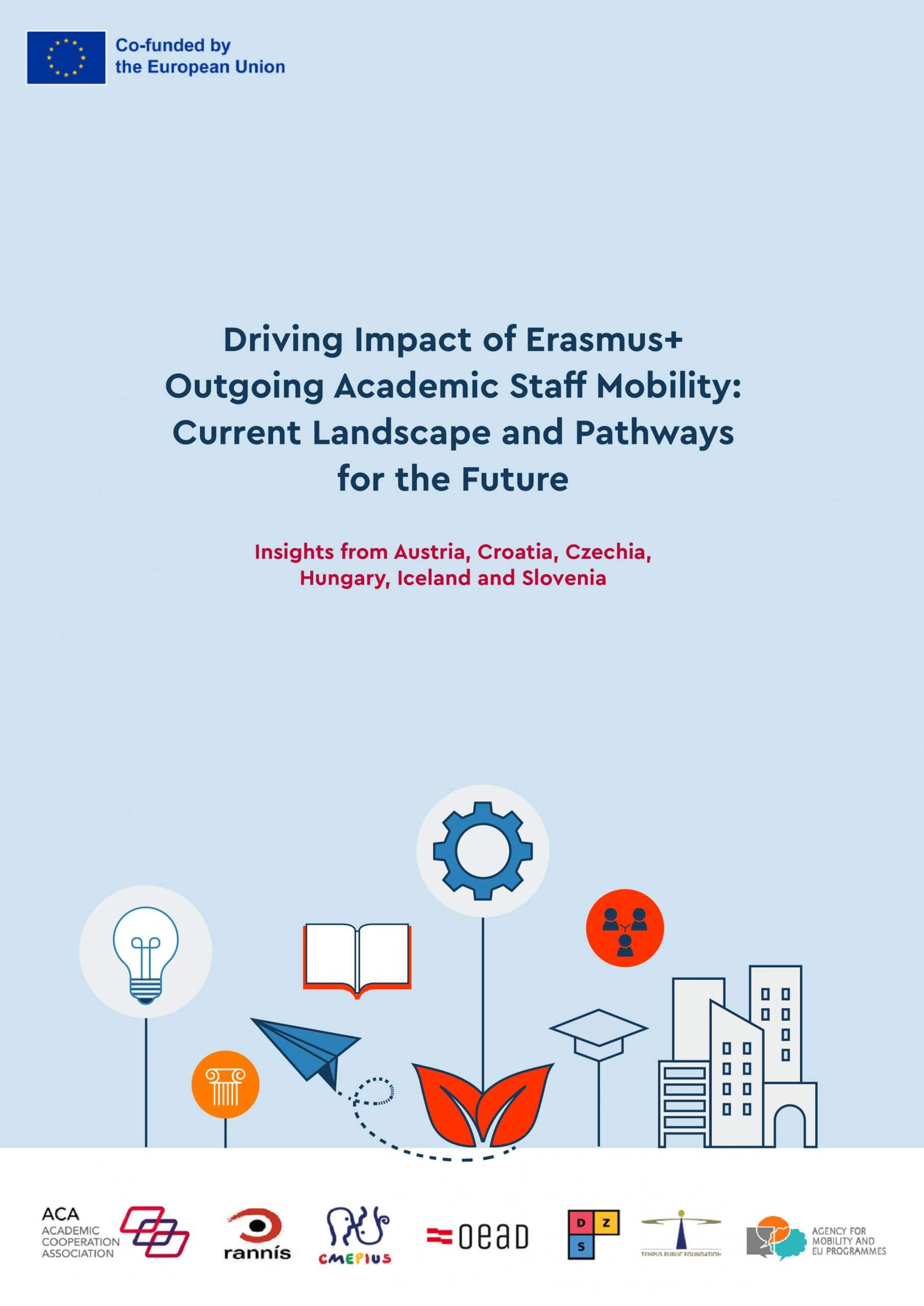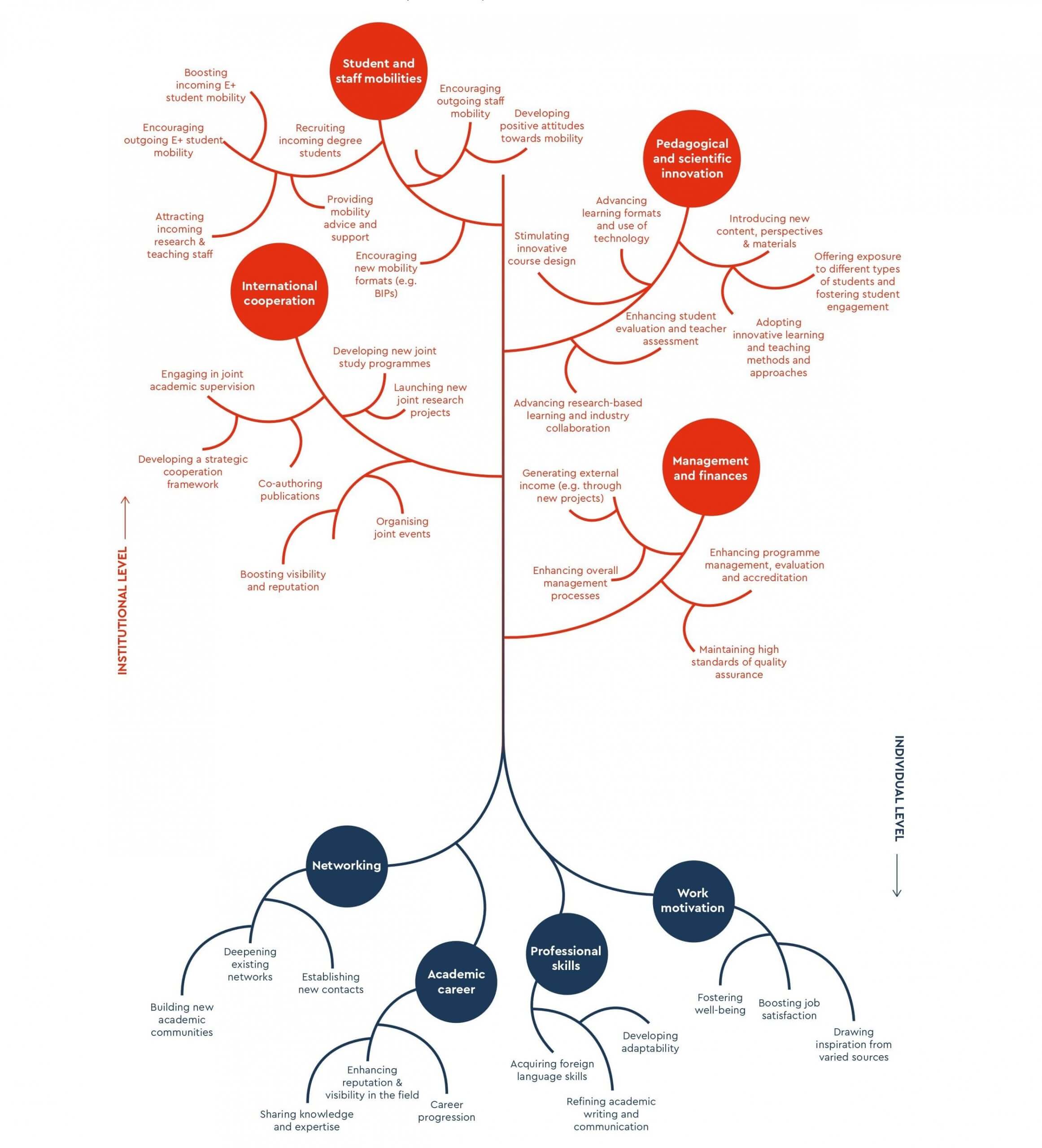Stay in the loop! Subscribe to our mailing list
 |
Staff mobility is a key component of the Erasmus+ programme. Alongside student mobility, it has consistently been a focal point for ACA and many of its member organisations, some acting as national agencies for Erasmus+. Staff mobility under Erasmus+ has a long-standing reputation as a highly versatile tool supporting professional and personal development of higher education staff across Europe. However, the broader institutional effects of staff mobility—spanning learning, teaching, research, and other central, faculty, and departmental processes, especially in an international context— have not been as prominently discussed. The publication, Driving Impact of Erasmus+ Outgoing Academic Staff Mobility: Current Landscape and Pathways for the Future, tackles this gap, taking further ACA’s research series focusing on staff mobility within the Erasmus+ framework. |
It builds upon the earlier findings from a comparative data analysis of Erasmus+ staff mobility undertaken by ACA in 2021, in collaboration with nine Erasmus+ national agencies.
|
This study was produced with the support and active engagement of six ACA members, national agencies for Erasmus+ in Austria, Croatia, Czechia, Hungary, Iceland and Slovenia: the Agency for Mobility and EU Programmes (AMEUP), the Centre of the Republic of Slovenia for Mobility and European Educational and Training Programmes (CMEPIUS), the Czech National Agency for International Education and Research (DZS), Austria’s Agency for Education and Internationalisation (OeAD), Tempus Public Foundation (TPF), and the Icelandic Centre for Research (Rannís). Based on a series of in-depth interviews with 65 mobile academics and 11 institutional coordinators, this study zooms into a multitude of staff mobility drivers and impact areas, as well as impact impediments and enablers. |
 |
It proceeds with outlining possible ways for pursuing more strategic approaches to academic staff mobility and concludes with a set of recommendations for higher education institutions and policymakers to support impact-driven staff mobility under Erasmus+.